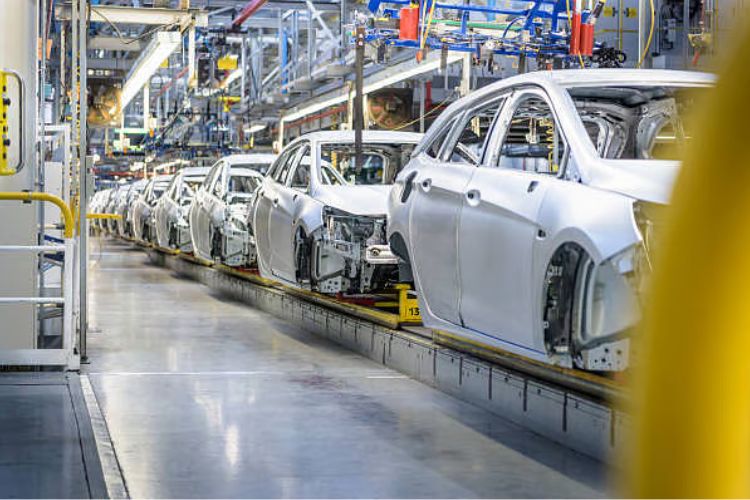- GST: 27AAHFC0282F1ZP
- sales@coninsindia.com
- +91 9545521323
Best Conformal Coating for Automotive Electronics: Complete Guide
In today’s automotive industry, electronic components play a critical role in vehicle safety, performance, and comfort. However, these sensitive electronics are constantly exposed to harsh environments — including moisture, chemicals, dust, and extreme temperatures. That’s where PCB conformal coating becomes essential. But with multiple options available, what is the best conformal coating for automotive electronics? In this guide, we’ll explore the top types of conformal coatings, their applications, benefits, and what the future holds for this crucial protective solution.
What Is Conformal Coating in Automotive Electronics?
Conformal coating is a thin, protective, non-conductive film applied to electronic circuit boards and components to protect them from environmental damage. In the automotive sector, it ensures long-term reliability and prevents premature failure of electronic control units (ECUs), sensors, and other embedded systems.
Why Conformal Coating Is Critical for Automotive Electronics
- Temperature fluctuations
- Humidity and condensation
- Salt spray and road debris
- Vibration and mechanical shock
Without protection, these elements can lead to:
- Short circuits
- Corrosion
- Delamination of PCB layers
- Reduced component lifespan
Using the right conformal coating significantly reduces these risks and enhances durability.
Best Types of Conformal Coating for Automotive Electronics
Each type of conformal coating offers unique properties. The best choice depends on the environment, budget, and component design. Here are the top contenders:
1. Silicone Conformal Coating (SR)
Best for: High-temperature and moisture-rich environments
- Excellent thermal stability (-55°C to +200°C)
- Great moisture and corrosion resistance
- Flexible for dynamic stress areas
Used in: Engine control modules, under-hood electronics
2. Acrylic Conformal Coating (AR)
Best for: General-purpose protection and fast application
- Quick drying and easy to rework
- Moderate protection from humidity and contaminants
- Cost-effective
Used in: Infotainment systems, dashboards, and interior electronics
3. Polyurethane Conformal Coating (UR)
Best for: Chemical resistance and abrasion protection
- Tough and durable
- Great for exposure to fuels, oils, and solvents
- Moderate thermal resistance
Used in: Powertrain systems, battery management systems
4. Epoxy Conformal Coating (ER)
Best for: Rugged applications with harsh environments
- Excellent adhesion and mechanical protection
- Strong chemical and moisture resistance
- Difficult to rework
Used in: ADAS systems, safety-critical modules
5. Parylene Conformal Coating
Best for: Ultra-thin, high-performance coating
- Excellent dielectric strength
- Conformal even on complex geometries
- High barrier properties
Used in: Advanced sensor systems, autonomous driving modules
Key Application Areas in Automotive Electronics
Conformal coatings are most commonly applied in:
| Application | Why It Needs Protection |
|---|---|
| Engine Control Units (ECUs) | High temperatures, oil exposure, vibration |
| Advanced Driver-Assistance Systems (ADAS) | Sensitive to moisture and EMI interference |
| Battery Management Systems (BMS) | Voltage regulation, corrosion resistance |
| Infotainment & Telematics | Protection from humidity, user interaction, wear & tear |
| Lighting Systems (LEDs) | Exposure to dust, condensation, and vibration |
Application Methods of Conformal Coating
- Dip Coating: Ideal for batch production, complete coverage
- Spray Coating: Good for large-scale production
- Selective Coating (Robotic): High-precision application
- Brush Coating: Best for touch-ups and prototyping
Future of Conformal Coatings in Automotive Industry
With trends like EVs, autonomous driving, and IoT integration, automotive electronics are becoming more complex and compact. As a result, the demand for PCB coatings is rising to ensure reliability and durability in challenging environments.
- Nano-coatings and smart coatings are emerging
- Automated selective coating is becoming the norm for production lines
- Eco-friendly coatings (low VOC) are gaining traction
- Higher standards like IPC-CC-830C and IEC standards are being adopted for compliance
How to Choose the Best Conformal Coating for Your Application
- Environmental Exposure (temperature, humidity, chemicals)
- Electrical Requirements (dielectric strength, insulation)
- Mechanical Stress (vibration, expansion)
- Ease of Application & Repair
- Cost-effectiveness vs. Performance
Final Thoughts
When it comes to protecting sensitive automotive electronics, choosing the best conformal coating is no longer optional — it's a necessity. For high-temperature and under-hood applications, silicone is often the best. For cost-effective and reworkable coatings, acrylic works well. Meanwhile, parylene is the gold standard for advanced, miniaturized electronics. Trusted manufacturers like Conins Pune offer a wide range of conformal coatings tailored to meet the evolving demands of the automotive industry.
As automotive technology continues to evolve, so too will the demand for high-performance, reliable, and sustainable conformal coatings.



